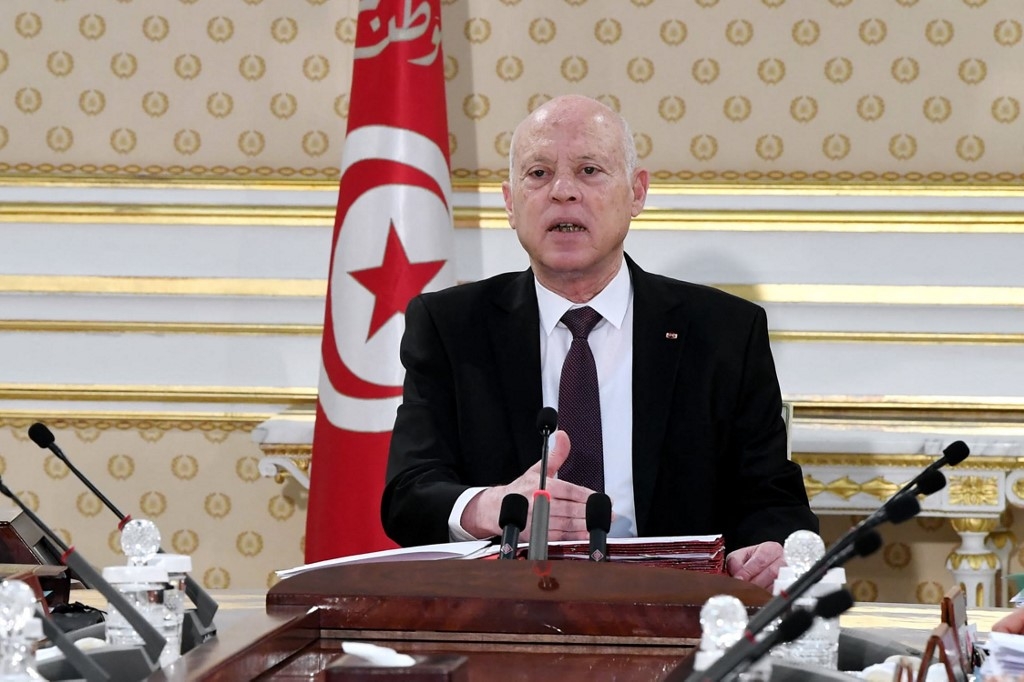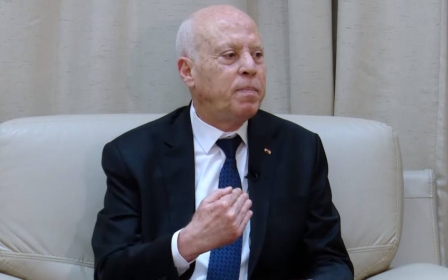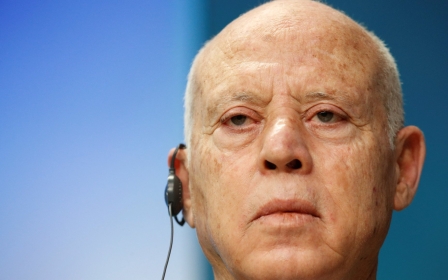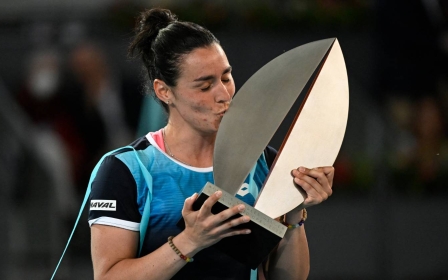Tunisia: President names pro-coup members to new election commission

Tunisian President Kais Saied on Monday appointed new members of the election commission, in a move critics say will entrench his one-man rule and cast doubt on the country's electoral integrity.
Saied said last month he would replace most election commission members, seizing control of one of the last independent bodies in the North African country.
Saied had already dismissed parliament and taken control of the judiciary after assuming executive authority last summer, saying he could rule by decree in what his opponents denounce as a coup.
Last month, several Tunisian opposition parties announced the formation of a National Salvation Front to "save" the country from the deepening political crisis.
Saied, who asserts his actions were legal and needed to save Tunisia, is rewriting the democratic constitution introduced after the 2011 revolution and says he will put it to a referendum in July.
Farouk Bouasker, the new head of the new election commission appointed by Saied, served as vice president of the previous electoral body.
Information technology specialist
Aroussi Mansri and Sami Ben Slama, officials in previous commissions, were also appointed to the new body, according to the official gazette.
Ben Slama, a fierce critic of Tunisia's largest party Ennahda, has expressed in recent months his support for Saied's moves.
In a tweet, the Tunisian political analyst Mohamed-Dhia Hammami said that Ben Slama wanted Saied to "get rid of [Ennahda leader Rached] Ghannouchi" and that he disliked the National Salvation Front.
The new seven-member panel also includes three judges and an information technology specialist, Reuters reported.
The commission was elected by parliament after 2011.
In recent months, Saied had reiterated that the commission is not independent, even though he won the presidential elections in 2019 under its supervision.
The dissolved commission's head, Nabil Baffoun, had angered Saied by criticising his plans to hold a referendum and a parliamentary election later, saying such votes could only happen within the framework of the existing constitution.
Middle East Eye propose une couverture et une analyse indépendantes et incomparables du Moyen-Orient, de l’Afrique du Nord et d’autres régions du monde. Pour en savoir plus sur la reprise de ce contenu et les frais qui s’appliquent, veuillez remplir ce formulaire [en anglais]. Pour en savoir plus sur MEE, cliquez ici [en anglais].




